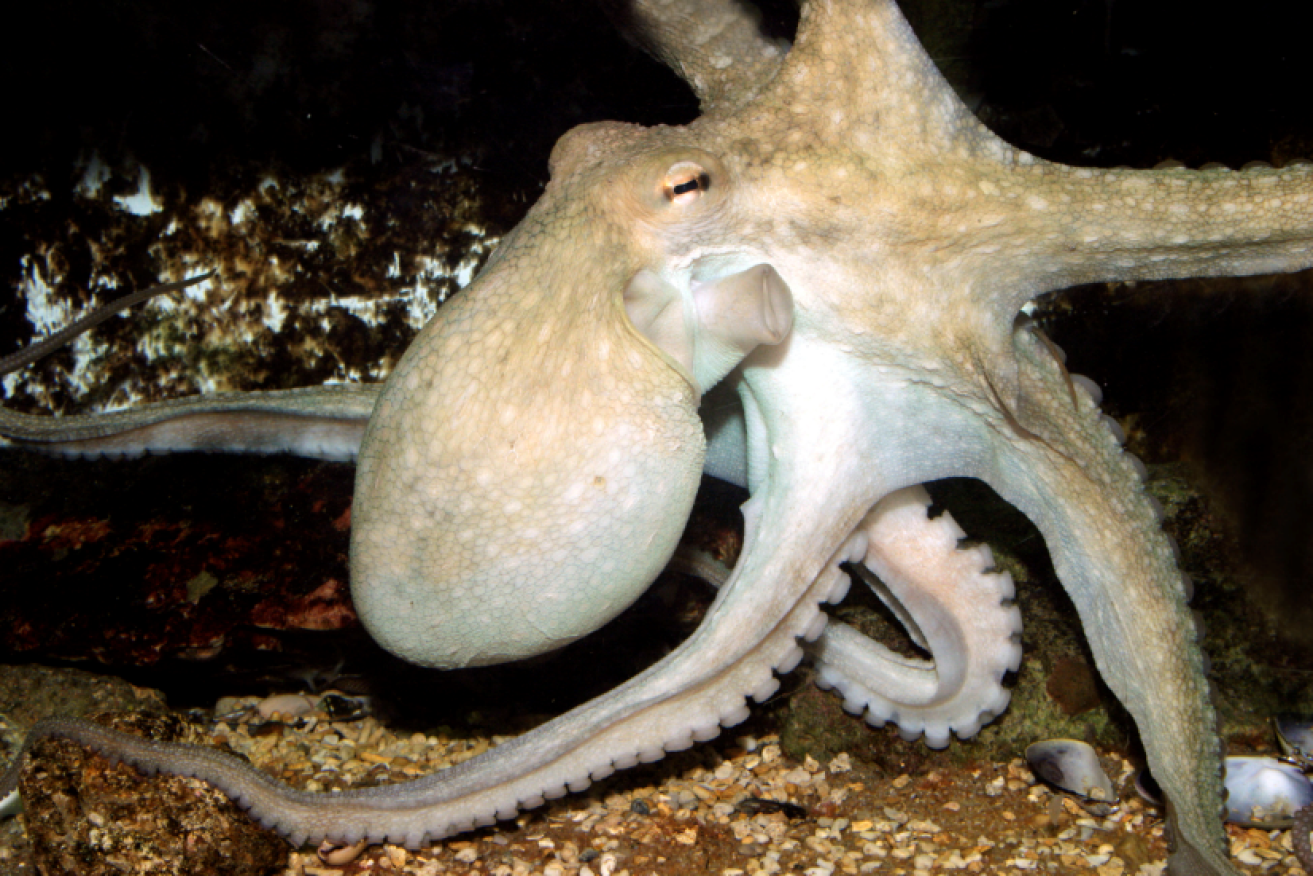Scientists discover octopuses on ecstasy act just like humans

The tested octopuses became all touchy-feely. It is not known if they also enjoy techno and attending raves. Photo: AAP
Octopuses on MDMA, the drug commonly known as ‘ecstasy’, have act just like humans when high on the drug, prompting scientists to suggest an evolutionary link between the two species.
Researchers studied the genome of a kind of octopus not known for its friendliness toward its peers, then tested its behavioural reaction to the popular mood-altering drug.
The researchers said the findings may open opportunities for accurately studying the impact of psychiatric drug therapies in many animals distantly related to people.
Gul Dolen, assistant professor of neuroscience at the Johns Hopkins University School of Medicine in Maryland, said: “The brains of octopuses are more similar to those of snails than humans, but our studies add to evidence that they can exhibit some of the same behaviours that we can.
“What our studies suggest is that certain brain chemicals, or neurotransmitters, that send signals between neurons required for these social behaviours are evolutionarily conserved.”
A summary of the experiments was published in Current Biology.
Prof Dolen designed an experiment with three connected water chambers: one empty, one with a plastic action figure under a cage and one with a female or male laboratory-bred octopus under a cage.
Four male and female octopuses were exposed to MDMA by putting them into a beaker containing a liquefied version of the drug, which is absorbed by the octopuses through their gills.
Then they were placed in the experimental chambers for 30 minutes.
All four tended to spend more time in the chamber where a male octopus was caged than the other two chambers.
“It’s not just quantitatively more time, but qualitative. They tended to hug the cage and put their mouth parts on the cage.
“This is very similar to how humans react to MDMA; they touch each other frequently,” Prof Dolen said.
Under normal conditions, without MDMA, five male and female octopuses avoided only male, caged octopuses.
Prof Dolen said the experiments suggest that the brain circuits guiding social behaviour in octopuses are present in normal conditions, but may be suppressed by natural or other circumstances.
“Octopuses will suspend their antisocial behaviour for mating, for example. Then, when they are done mating, they go into aggressive, asocial mode,” said Prof Dolen.
Prof Dolen cautions the results are preliminary and need to be replicated and affirmed in further experiments before octopuses might be used as models for brain research.
-AAP







